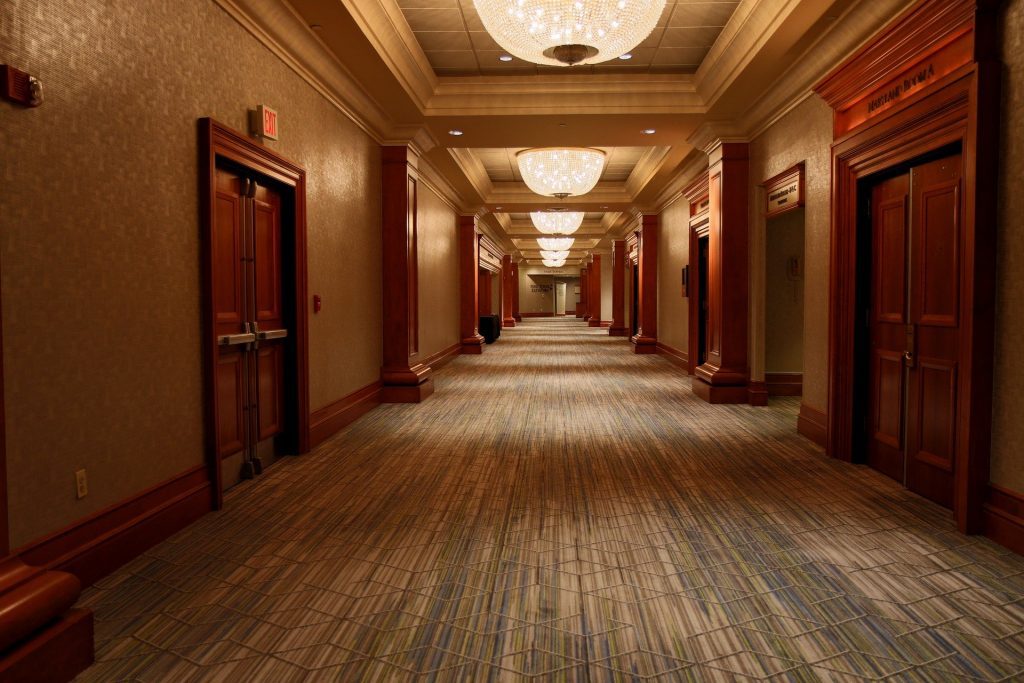Skift Take
Countless unemployed workers in the travel industry have been relying on the extra weekly $600 from the government. Now that the payments are effectively over, many travel workers will face even greater hardship to just get by.
Joanne Liu, 53, is among the tens of thousands of laid-off workers in the U.S. travel industry who has relied on the $600-a-week unemployment benefit created by Congress to help those impacted by Covid-19. She’s been on temporary layoff from her position as a housekeeper at The St. Regis San Francisco since March 16.
Her family was living paycheck-to-paycheck before the pandemic, so they don’t have any savings in the bank, and she’s not the only one who’s lost work. Her husband is a driver for a laundry contractor connected to the hotel, part of Marriott, but with the lack of business at the hotel, he’s been without a job as well. She also has a daughter who’s in college, lives near the campus, and who lost work at her student job because of the pandemic. So Liu is now helping her with expenses, like rent.
Now, she and many other travel industry employees who’ve lost work during the pandemic are facing a big problem: the end of the extra $600 that the federal government has been providing unemployed workers through the CARES Act. Technically, the benefits run through July 31, but this past weekend was the last one states were set to pay due to the way the calendar for payments is set up.
The coronavirus has decimated employment in the travel industry, and no area has shown more evidence of that than the leisure and hospitality sector. The industry had an unemployment rate of 28.9 percent in June, according to data from the Bureau of Labor Statistics, which was the highest among different industries.
Unite Here represents 300,000 members working in fields including the hotel, gaming, and food service industries. The organization’s international president, D. Taylor, said that members of the union were concerned about the oncoming end to the benefits. He thinks that if there is not an extension, it would mean an enormous increase in homelessness. He also added that that “if you couple losing that money with a loss of health insurance, it’s sort of we’re back to the days of Oliver Twist, where, how can the richest country in the world treat millions of hard-working people as disposable as an old pair of shoes?”
Taylor said that at one point, 98 percent of the union’s members were not working. He said that number has decreased to around 80 or 85 percent, but even so, some of those who have returned generally are not working 40 hours a week.
The entire travel industry has seen workers lose their jobs because of the pandemic. Back in May, the U.S. Travel Association released data showing that unemployment in the industry was 51 percent. A recent surge in cases has cast further doubt on how the industry will do in the coming months. Even as job gains were made in the hospitality industry in June, unemployment in the hotel sector was still high.
Even during all this, there has been help. Geoconda Argüello-Kline,
the secretary-treasurer for the Las Vegas-based Culinary Workers Union Local 226, a Nevada affiliate of Unite Here, said the organization has done several things to help members who have been laid off, including assisting them in applying for unemployment, giving them information about healthcare, and even having a food program to help those that need something to eat. Tens of thousands of the 60,000 workers represented by the Culinary Workers Union are still unemployed.
Currently, all eyes are on Washington to see what types of provisions might be put in place to help give workers more relief. Argüello-Kline stressed that elected leaders need to take care of the people. On Monday, Senate Republicans presented their coronavirus relief plan, with details that included setting federal unemployment insurance at 70 percent of a worker’s previous wages, as opposed to the previous $600 a week.
For travel workers like Liu who face uncertain futures as their industries grapple with little demand, the loss of $600 a week is an enormous hit. Whatever new help there will be, if any, can’t come soon enough.
Have a confidential tip for Skift? Get in touch
Tags: coronavirus, hospitality, hotels, Travel industry
Photo credit: A hallway. Many unemployed hospitality workers have been relying on the extra $600 a week in unemployment relief the government has been providing in recent months. Pixabay

